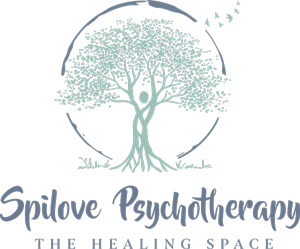By Melanie Taylor, LMFT, RYT-500
You keep hearing the phrase “DBT”. Your psychiatrist has recommended you find a DBT therapist or DBT group. You have a friend who joined a DBT group in Philadelphia and repetitively tells you he wishes you would go. So, what’s so special about this therapy?
Dialectical Behavior Therapy (DBT) is a research- driven, evidence-based therapy for coping with intense and impulsive emotions and behaviors.
Maybe you have utilized disordered eating behaviors or self harm behaviors to try and numb an emotional experience that felt too overwhelming. Or, maybe you find yourself in repetitive relationship conflict where it feels like no one understands your needs or intentions or you find yourself lashing out at loved ones. Sometimes life stops feeling worth living and we feel like were stuck and will never get out of the trap of our misery.
DBT therapy offers skills-based learning to strengthen coping skills for difficult emotions while also providing opportunities to develop a new way of thinking about life, emotions, relationships and your sense of Self.
Its effective for those dealing with intense anxiety and depression, suicidal thoughts, disordered eating, self-injurious behavior, substance abuse, trauma symptoms, borderline personality disorder, impulsive behaviors (just to name a few…).
The word “dialectical” means that multiple truths can exist at one time. More specifically, a dialect is a synthesis or integration of opposites, which helps the therapist and client get unstuck from extreme positions. Have you ever heard of black or white thinking? The mind attaches solely to an extreme belief, sparking extreme emotional responses and then extreme behaviors to try and cope with the extreme emotions.
DBT helps you find the grey- the space in between extremes where you are better able to strike a balance in thoughts and emotions, and therefore, more agency over your behavioral reactions.
The foundational dialect of Dialectical Behavior Therapy is the balance between acceptance and change. Many therapy practices are mostly focused on change strategies. Now, I hear you, “But isn’t that why I go to counseling.. to make a change?” Well yes, AND when we are looking to make changes, it is imperative that we actually have awareness (and acceptance!) of where and who we are right now. Like navigating yourself on a map (you know, those paper ones they used to have in the dark ages), if you’re just fighting the fact that you are starting the journey where you are (“I hate that I’m in Philadelphia right now.. that’s too far away from my destination. I’ll never make it there. I shouldn’t be here. I’m worthless for ending up here. This will never work.”), you’re wasting energy on what you need to be effective to get to your destination, if you even feel any motivation at all to try.
DBT emphasizes a balance of acceptance and change- validation skills and coping skills- to carry you into the changes needed to make a life worth living, which include a strengthened relationship with Self through self validation, self acceptance and self compassion.
So, when you are in a crisis or difficult emotional situation, DBT explains that we have four ways of responding:
1. Change the situation.
2. Feel better in the situation.
3. Accept the situation.
4. Stay miserable.
DBT therapy teaches you how to do the first three- change, cope, accept. Utilizing acceptance and change strategies through the four skill sets-mindfulness, emotion regulation, distress tolerance and interpersonal effectiveness- you will experience a transformation in your way of responding to difficult emotions, finding yourself more effective in your life and in your relationship with others and yourself.
Want to learn more? Here’s how.
We have individual DBT therapists and DBT groups in our Bryn Mawr, Philadelphia and West Chester offices.
Sign up today for the DBT Skills Group starting February 5, 2020 in Bryn Mawr!
Reserve your spot now for the DBT Skills Group starting in March 2020 in Center City, Philadelphia!
Join our interest list for the next upcoming DBT Group in West Chester!
We are here to help you gain agency over your life, emotions and relationships and build the life you desire to live!
If you want to learn more about if DBT would be a good therapy for you, call us today for a FREE 15-minute phone consultation.





